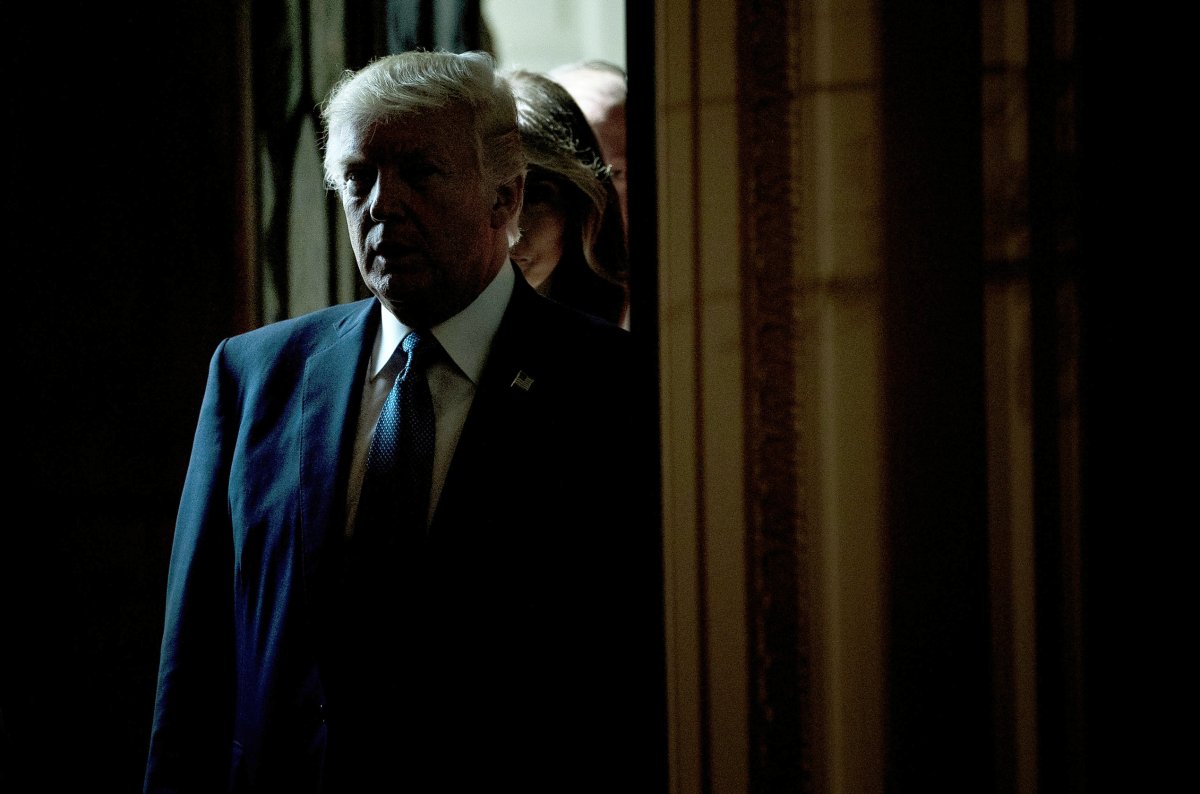- Former federal prosecutor Glenn Kirschner said that Donald Trump, who was recently arraigned on 34 counts of falsifying business records, is the ideal defendant for prosecutors to fight in court.
- Kirschner appeared on an episode of Julie Mason Mornings on SiriusXM radio Wednesday morning to discuss Trump's investigations.
- He said that Trump incriminated himself by continuing to speak about the investigations, specifically the documents case, which he referenced on Sean Hannity's show.
- Kirschner claimed Trump's motivation for keeping the documents was financial in nature.
- The grand jury investigating Trump's possession of classified documents has not yet issued an indictment.
Former President Donald Trump is the ideal defendant for prosecutors to fight in court, according to former federal prosecutor Glenn Kirschner.
Trump was arrested and arraigned Tuesday and faces 34 counts of falsifying business records in the first degree, a felony charge. Trump pleaded not guilty to all charges and was released on bail. He faces other investigations, including one led by Special Counsel Jack Smith into the discovery of classified documents at Trump's Mar-a-Lago estate in Florida in August 2022. Trump's actions in that investigation are self-incriminating, according to Kirschner.
Kirschner appeared on an episode of Julie Mason Mornings on SiriusXM radio Wednesday morning to discuss the Trump investigations. Near the end of the episode, Kirschner explained that Trump is incriminating himself by continuing to speak about the investigations, specifically the documents case. Kirschner referenced Trump's appearance on Fox News host Sean Hannity's show at the end of March.
On the episode with Mason, Kirschner said Trump's motivation for keeping the documents was financial in nature, and that he admitted to it while on Hannity.

"He goes on Hannity and admits to the crime and not only admits to the crime, but he admits to the motive," Kirschner said. "As a prosecutor, I never dreamed of having this kind of directly incriminating evidence."
Kirschner said Trump related his experience to that of former President Richard Nixon.
"Do you know Richard Nixon got $18 million, basically I'm going to paraphrase here, for selling documents back to the federal government?" Kirschner said, adding that he thought Trump was "holding federal documents hostage" to later sell back to the government.
In 2000, the Department of Justice (DOJ) settled a 20-year legal battle after it agreed to pay $18 million to Nixon's estate to compensate for seizing presidential papers, photographs and recordings after Nixon resigned in 1974. According to an article by the New York Times, the payment settled a dispute that began when Nixon sought payment for the DOJ's collection of 44 million documents, 3,700 hours of tapes and thousands of photographs.
During the interview with Hannity, Trump said he had the "right" to take items from his time as president, and he referenced Nixon's experience as proof.
"I have the right to take stuff. Do you know that they ended up paying Richard Nixon, I think, $18 million for what he had? They did the Presidential Records Act. I have the right to take stuff. I have the right to look at stuff," Trump said.
The Presidential Records Act actually prevents presidents from keeping U.S. documents as their personal property upon leaving the White House. Prior to the act, which was passed in 1978 and applied to Ronald Reagan and every subsequent president, presidents had the right to claim any of their presidential documents as their personal property upon leaving the White House.
Fearing that Nixon would destroy important documents or tapes, Congress passed the Presidential Recordings and Materials Preservation Act, which applied only to Nixon but granted the National Archives ownership of documents and tapes from Nixon's presidency. Various lawsuits ensued, and eventually, a court ruled that Nixon's estate was entitled to compensation for the seizure of the documents.
However, every president since Reagan is under the Presidential Records Act, which deems presidential documents as public property that must be returned to the government upon the president leaving the White House. Because of the act, presidents would not be compensated for retaining the documents and then returning them to the government.
The grand jury investigating Trump's possession of classified documents has not issued an indictment as of Wednesday. Trump continues to deny any wrongdoing in the case.
Newsweek reached out to a Trump spokesperson for comment.
Uncommon Knowledge
Newsweek is committed to challenging conventional wisdom and finding connections in the search for common ground.
Newsweek is committed to challenging conventional wisdom and finding connections in the search for common ground.
About the writer
Anna Skinner is a Newsweek senior reporter based in Indianapolis. Her focus is reporting on the climate, environment and weather ... Read more
To read how Newsweek uses AI as a newsroom tool, Click here.






